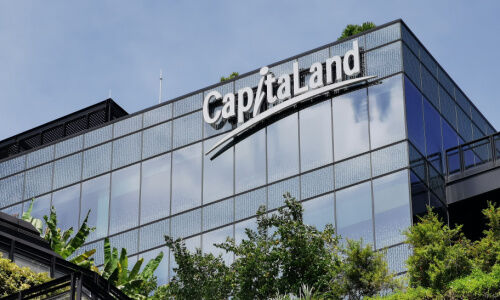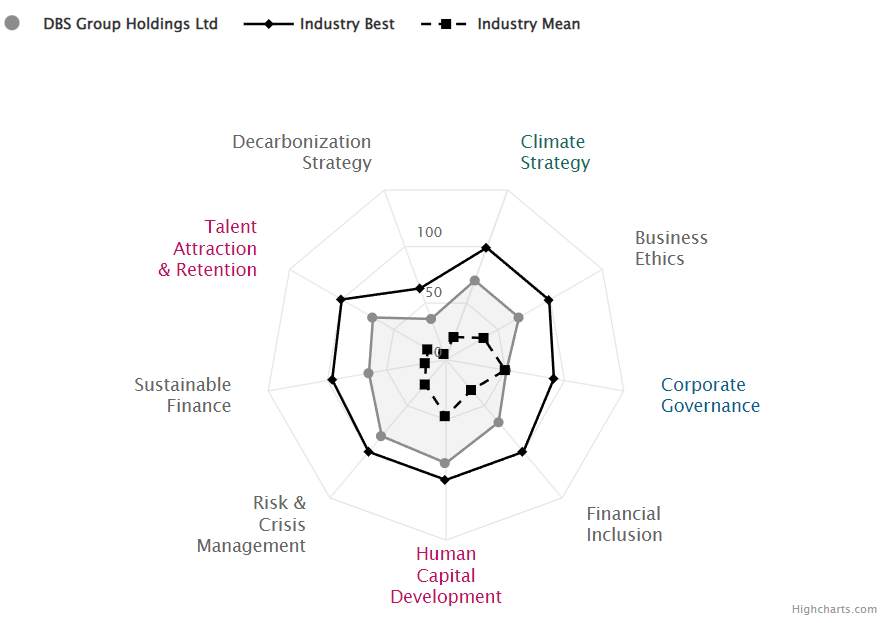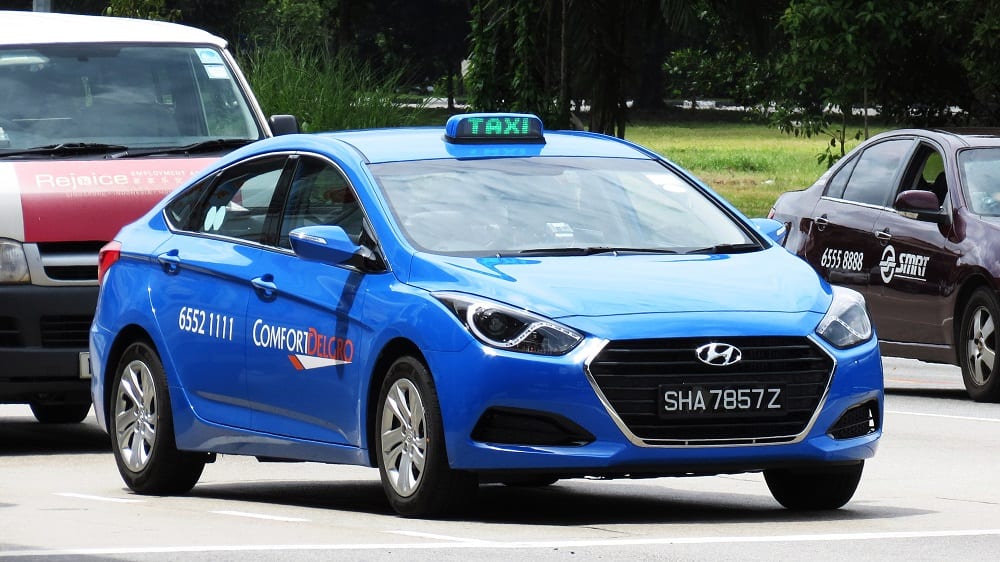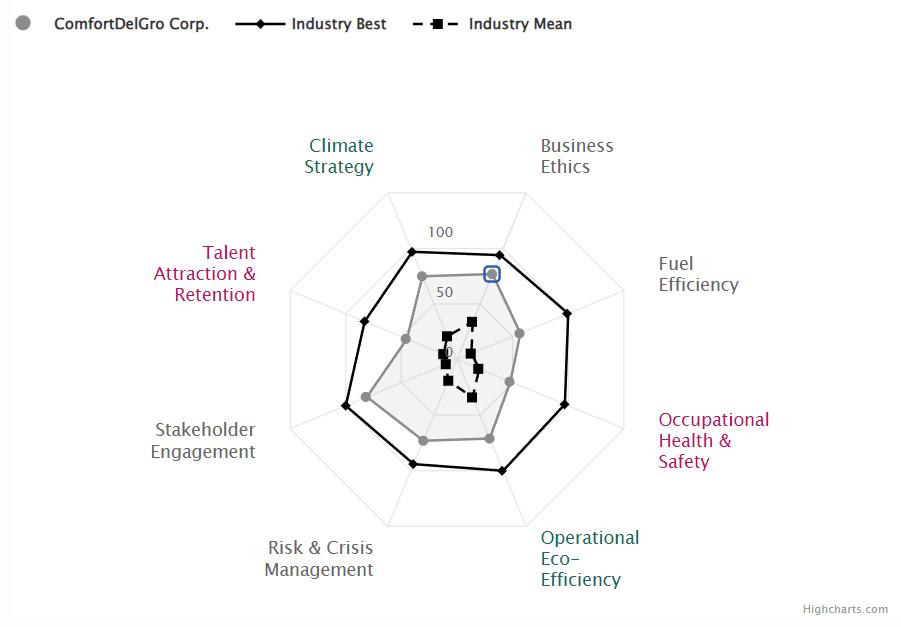Companies used to treat ESG like a stepchild. Now, investors are forcing them to change.
Environmental, Social and Governance (ESG). A concept that is relatively new to the corporate culture in Southeast Asia, where companies now have to report on what they are doing to address environmental, social and governance issues.
In Singapore, companies are required to prepare an annual sustainability report that is suited to their industry and business needs. However, this can be tricky as each company has their own unique characteristics.
Luckily, S&P Global publishes ESG scores for Singaporean companies, while Sustainalytics also publish their risk ratings. A higher ESG score means that the company has better ESG ratings, while a lower risk rating means they have lower risks.
Let’s take a look at the top 4 Singaporean blue chip stocks with the highest ESG scores and lowest risk ratings!
#1: CapitaLand Investment
CapitaLand Investment (CLI) comes in at number 1 with an ESG score of 78.7 and low-risk rating of 13.1.
CLI is an investment company involved in the management of property and REITS. It has assets in over 40 countries and 220 cities. Its assets are mainly concentrated in the retail portion (26% of assets), followed by New Economy (17%), office (16%), and lodging (36%).
CLI scored highest in its environmental segment at 87, and is much higher than the industrial average of 21. Likewise, CLI also scored higher for its social (78; industry: 20) and governance (68; industry: 27).
An in-depth look reveals that CLI scored high on environmental due to its high focus on operational eco-efficiency and climate strategy. Here’s a list of their achievements:
- Reduced carbon emissions by 52% since 2008.
- Reduced energy and water usage by 42% and 51% respectively since 2008.
- Green building certification for 58% of its global portfolio.
In terms of financial performance, revenue grew at a strong rate of 25% in 2022 to SG$2.9 billion boosted by the reopening of most countries. However, profits declined to SG$861 million in 2022 from SG$1.3 billion in 2021 as its property portfolios valuation were reduced due to the high interest rate environment.
CLI is currently trading at a higher price-to-earnings ratio of 18.5 times compared to the industrial average of 14.3 times. Dividend yield stood at 3.9% while market analysts had a BUY investment call on CLI with a target price of SG$4.02.
#2: HongKongLand
HongKongLand (HKL) is second in the list at a score of 70.2 a risk rating of 13.1 (low).
HKL is a property investment company involved in the prime office and luxury retail segments. Their assets are mainly located in Hong Kong, Singapore, Beijing and Jakarta.
Its ESG scores has significantly improve from only 14 in 2018 to 70 in 2022, driven mainly by its environmental score of 81. Meanwhile, its social and governance scored 67 and 59 respectively.
Diving deeper, similar to CLI, HKL scored well for its operational eco-efficiency (91), resource conservation & efficiency (73), and climate strategy (81) in its environmental component.
Among some of the achievements in the environmental component include:
- 88% of leasing portfolio achieved green building certification.
- WF Central in Beijing is powered entirely by renewable energy.
Revenue of HKL declined slightly to SG$2.2 billion in 2022 from SG2.4 billion in 2023, but managed to turn a profit of SG$203 million (2021: -SG$249 million).
HKL is currently valued at a price-to-book ratio of 0.25 times, much lower to the industry’s average of 0.45 times. However, dividend yield is high at 6.2%.
#3: DBS Bank
DBS Bank (DBS) is at third with a ESG score of 62.6 and a risk rating of 19.6 (low).
DBS is involved mainly in providing banking services and is one of the big 3 banks in Singapore. Institutional and consumer banking encompassed the majority of DBS’s revenue at 47% and 40% respectively in 2022.
The social component ranks the highest for DBS at 66, followed by environmental (65) and governance (59). This was led by high scores for human capital development (86; industry: 47) and talent attraction & retention (70; industry: 17).
On the social front, these are the strength of its employee engagements and human capital developments:
- Employee engagement rate increased to 87% in 2022 from 84% in 2020.
- Internal mobility rate (% of employees switching to different roles) rose to 7.7% in 2022 from 6.3% in 2020.
- 99.6% of its employees underwent training in 2022.
Meanwhile, revenue of DBS grew significantly by 14.6% to SG$16.5 billion in 2022, driven by Singapore’s full reopening of its economy. Profits grew by an even stronger rate of 21.3% to SG$8.1 billion from SG$6.7 billion.
At the current juncture, DBS is trading at a low price-to-earnings ratio of 8.8 times compared to the industry’s average of 10.2 times. Dividend yield is at 4.5% while analysts are calling an OVERWEIGHT call with an average target price of SG$37.8.
#4: Comfort Del Gro
Rounding up the list is Comfort Del Gro (CDG) with an ESG score of 62 and a risk rating of 15.1 (low).
CDG provides land transportation services which includes taxi, bus, car rental & leasing, automotive engineering and maintenance services. Its famous subsidiary, SBS Transit, is Singapore’s largest public bus and rail operator.
Interestingly, unlike the 3 companies above, CDG ranks highest for its governance at a score of 67 (industry: 28). This is followed by environmental (62; industry: 26) and social (59; industry: 21).
In the governance segment, its high score was led by stakeholder engagement (81; industry: 10), risk & crisis management (73; industry: 19) and business ethics (77; industry: 34).
Close to 90% of its board are independent directors, with only 20% serving more than 9 years on it. This ensures that risks are managed with a fair and objective board and business ethics are maintained at a high level.
Meanwhile, revenue grew at a steady rate of 6.9% to SG$3.8 billion in 2022 as relaxation of movement control restrictions allowed more passenger traffic. Profits rose at an even stronger rate of 33.1% to SG$173 million in 2022 from SG$130.1 million in 2021.
In terms of valuation, CDG is trading at a price-to-earnings ratio of 20.5 times compared to the industry’s average of 40.6 times. Market analysts have CDG at an investment call of OVERWEIGHT with an average target price of SG$1.48.
Conclusion
ESG is fast becoming a main consideration for many investors as the world moves to net zero carbon emission and more transparent disclosures. These 4 Singaporean companies could be worth considering as they are considered ahead of their industry peers.






